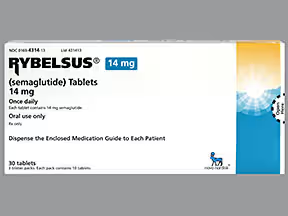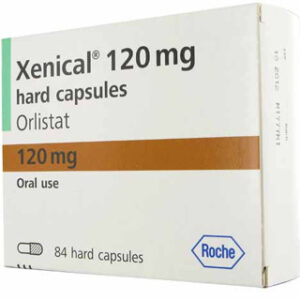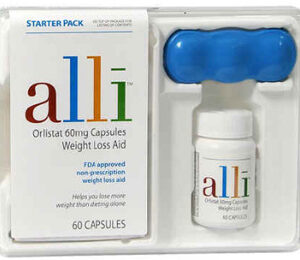Drug Overview
Alli (orlistat) is a weight loss aid designed for individuals battling obesity. It is the over-the-counter version of orlistat, a medication that has been aiding weight management under the prescription name Xenical. This drug is distinct in that it does not suppress appetite or directly stimulate metabolism. Instead, Alli functions by inhibiting the absorption of dietary fats in the intestine, thereby reducing caloric intake and assisting users in their pursuit of shedding excess pounds.
Indications and Usage
Alli is recommended for overweight adults with a body mass index (BMI) of 25 or above, who seek a reliable aid alongside a reduced-calorie, low-fat diet, and exercise program. It is optimally used for individuals committed to adopting a healthier lifestyle, intending to attain significant weight management milestones.
Dosage and Administration
The dosage for Alli is straightforward—consumers should take one 60 mg capsule with each meal containing fat, up to three times per day. It is imperative that users do not exceed the recommended dosage as this will not enhance the weight loss effects and may increase the risk of side effects. Administration of Alli should occur either during or up to one hour post-meal. If a meal is skipped or contains no fat, the dose of Alli can also be omitted.
Contraindications and Precautions
Alli should not be taken by individuals with certain medical conditions. This includes individuals with chronic malabsorption syndrome, cholestasis, or an allergy to orlistat or any other component of the Alli capsule. Caution is advised for individuals with a history of hyperthyroidism, kidney stones, pancreatitis, liver disease, and type 2 diabetes. It is also not considered safe for pregnant or nursing women. Individuals should consult their healthcare provider before beginning Alli, especially when taking other medications or managing preexisting health conditions.
Drug Interactions
Alli can interact with various drugs, including but not limited to, cyclosporine, levothyroxine, warfarin, and antidiabetic medications. Timing of these medications may need adjustment due to Alli’s potential to impede their absorption. Patients must discuss all medications, supplements, and vitamins they are taking or planning to take with their healthcare provider to ensure safe use.
Adverse Reactions
As with many medications, Alli may cause side effects. Common adverse reactions are linked to its fat-blocking action and include gastrointestinal issues such as oily spotting, flatulence with discharge, fecal urgency, fatty or oily stools, increased defecation, and possible incontinence. Rarely, severe liver injury has been reported. Users should monitor for symptoms of liver distress, such as itching, yellowing eyes or skin, dark urine, or loss of appetite, and seek medical attention promptly.
Use in Specific Populations
Alli’s efficacy and safety have not been established in pediatric patients under 18 years of age. The drug is also not recommended during pregnancy and lactation, as weight loss offers no potential benefit during these periods and may harm an unborn or breastfeeding child. Caution is advised for the elderly, and those with concurrent medical conditions should consult healthcare professionals before use.
Overdosage and Toxicity
Although no severe reactions have been reported with Alli overdose, should an individual consume more than the recommended amount, they should seek immediate medical attention or contact a poison control center. Symptoms of an overdose may mirror the side effects listed above, potentially with increased intensity.
Pharmacology and Mechanism of Action
Alli acts as a lipase inhibitor. It binds to the enzymes in the intestines responsible for breaking down fats, effectively preventing them from digesting about 25% of the fat consumed in food. By curbing the amount of dietary fat that is absorbed, Alli contributes to a caloric deficit which, when combined with diet and exercise, can lead to weight loss. It primarily affects fat absorption within the gut and has minimal systemic absorption, which distinguishes it from other weight loss medications that act in the brain or central nervous system.
Clinical Studies and Efficacy
Clinically tested in numerous studies, Alli has been shown to promote weight loss. In one-year clinical trials, between 35.5% and 54.8% of subjects experienced a 5% or more decrease in body mass, although this was not always solely attributable to the use of Alli. When paired with a lifestyle program, Alli helped to improve weight loss by approximately 50% compared to dieting alone, which illustrates the drug’s potential when properly incorporated into a comprehensive weight management plan.
Storage and Handling
Alli should be stored securely out of the reach of children, in its original packaging, at room temperature—away from excess heat and moisture. The bottle should be kept tightly closed and disposed of after the expiration date or if capsules show signs of tampering. It is crucial to handle Alli, as with all medications, with care to ensure it maintains its effectiveness.
Patient Counseling Information
When taking Alli, patients should be counseled on following a balanced, reduced-calorie diet that contains approximately 30% of calories from fat. Alli works by impeding the absorption of fat, so intake of fats in meals should be distributed equally to prevent side effects. Patients should also be advised on the potential for gastrointestinal reactions and how to manage them. Those who are on cyclosporine or levothyroxine should take them at least 4 hours before or after Alli to avoid interactions. Regular exercise is encouraged as part of the weight loss plan.
Frequently Asked Questions (FAQs)
Can Alli be taken with other diet pills?
Combining Alli with other diet medications is not recommended unless under the guidance of a healthcare provider.
Will Alli affect the absorption of vitamins?
Alli may reduce the absorption of fat-soluble vitamins. A multivitamin supplement containing vitamins A, D, E, K, and beta-carotene should be taken once a day, at least 2 hours before or after taking Alli.
How quickly will Alli start working?
Alli begins working shortly after the first dose. However, weight loss is a gradual process, and results will vary based on diet and exercise adherence.
What should be done if a dose is missed?
If a meal is missed, or if it contains no fat, the dose of Alli can be skipped. If a dose is missed but the meal contained fat, take Alli as soon as possible within the following hour.
What dietary recommendations should be followed while taking Alli?
A balanced diet is rich in fruits, vegetables, whole grains, lean proteins, and contains healthy fats in moderation. Additionally, a low-fat diet can help minimize the medication’s side effects.





Reviews
There are no reviews yet.